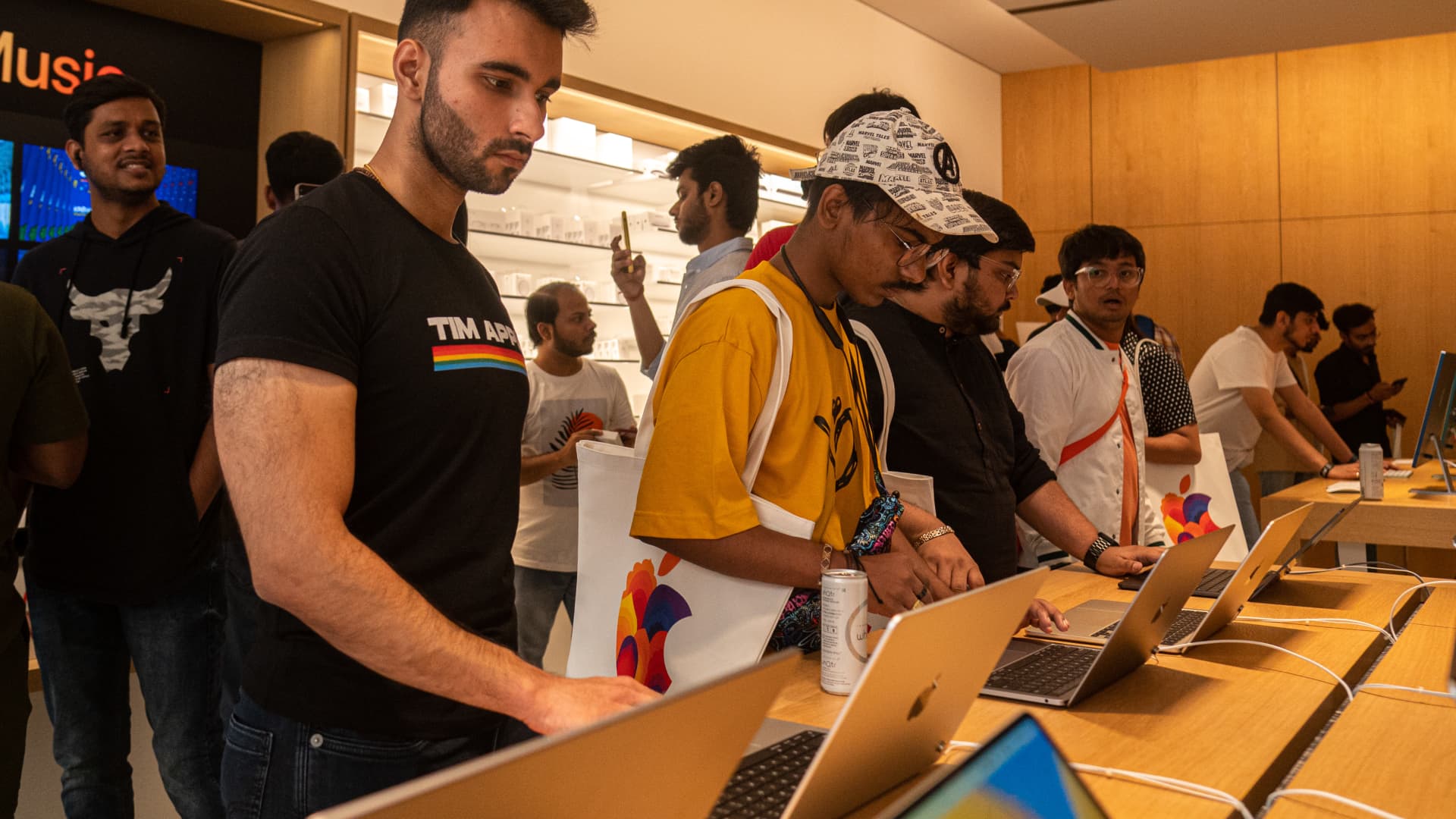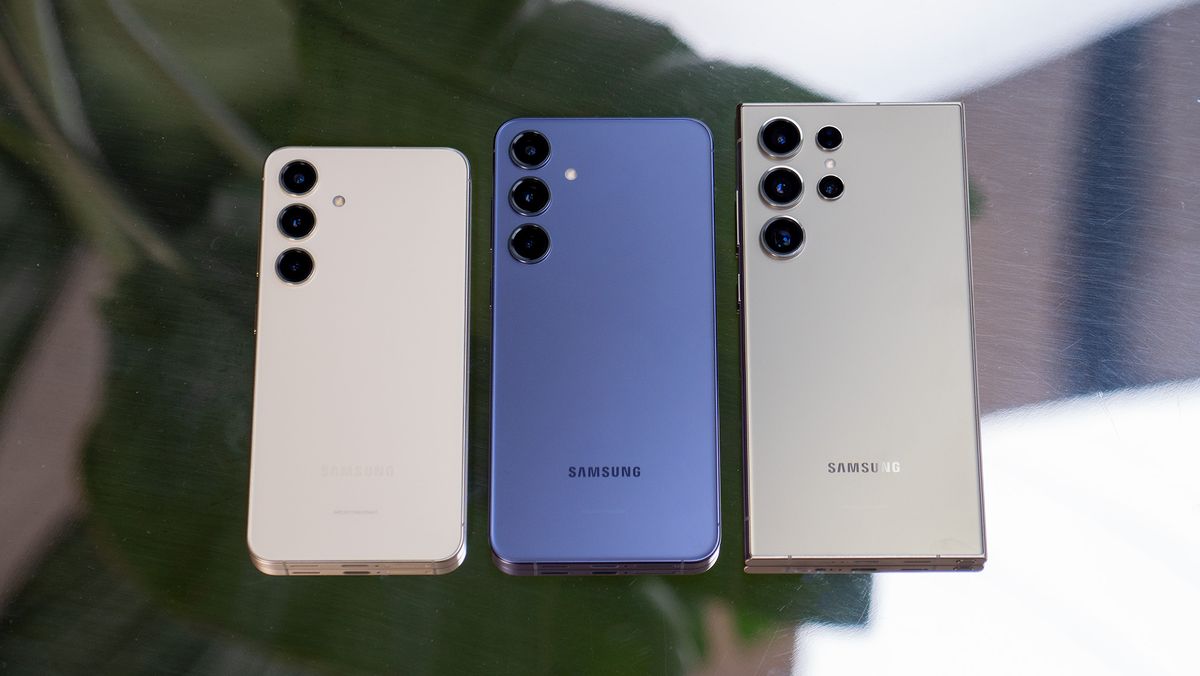People check Apple Macbook laptops at the new Apple Inc. store in New Delhi, India on April 20, 2023.
Nurphoto | Nurphoto | Getty Images
India’s consumer market is set to become the world’s third largest by 2027 as the number of middle to high-income households rise, according to a report by BMI.
The country currently ranks fifth, but the Fitch Solutions company predicts a 29% increase in real household spending will push India up two spots.
In fact, the report forecast that the growth in India’s household spending per capita will outpace that of other developing Asian economies like Indonesia, the Philippines and Thailand at 7.8% year-on-year.
“Overall, the gap between total household spending across ASEAN and India will also almost triple,” the report said.
BMI estimates India’s household spending will exceed $3 trillion as disposable income rises by a compounded 14.6% annually until 2027. By then, a projected 25.8% of Indian households will reach $10,000 in annual disposable income.
“The majority of these households will be located in the economic centres, such as New Delhi, Mumbai and Bengaluru. The wealthier households are mainly located in urban areas, making it easy for retailers to target their key target markets,” BMI said.
Growing young population
India’s large youth population is also a driving force for increased consumer spending.
Approximately 33% of the country’s population is estimated to be between 20 and 33 years old, and BMI expects this group to spend big on electronics.
The report predicts communications spending will grow by an average of 11.1% annually to $76.2 billion by 2027 due to a “technology-literate, urban middle class with increasing amounts of disposable income that would encourage expenditure on aspirational products such as consumer electronics.”
The country’s ongoing urbanization will also help boost consumer spending as companies can more easily access consumers and open more physical retail stores to cater to them.
In April, Apple opened two retail stores in Delhi and Mumbai. Samsung announced in the same month that it will set up 15 premium experience stores across India by the end of the year in major cities like Delhi, Mumbai and Chennai.
BMI also noted that global investors such as Blackstone Group and APG Asset Management have injected more money into the country’s shopping mall business to capitalize on consumer spending growth.





















Discussion about this post